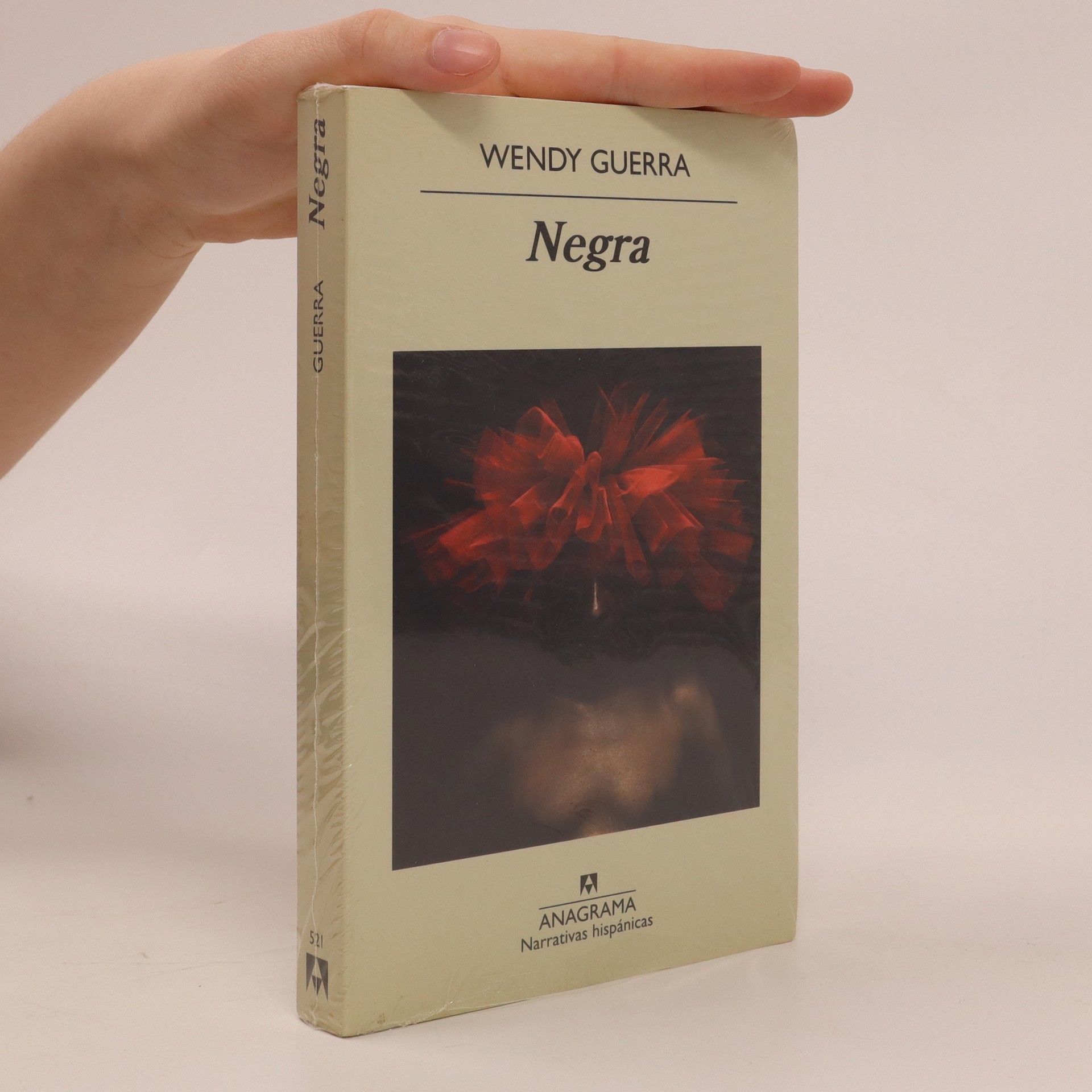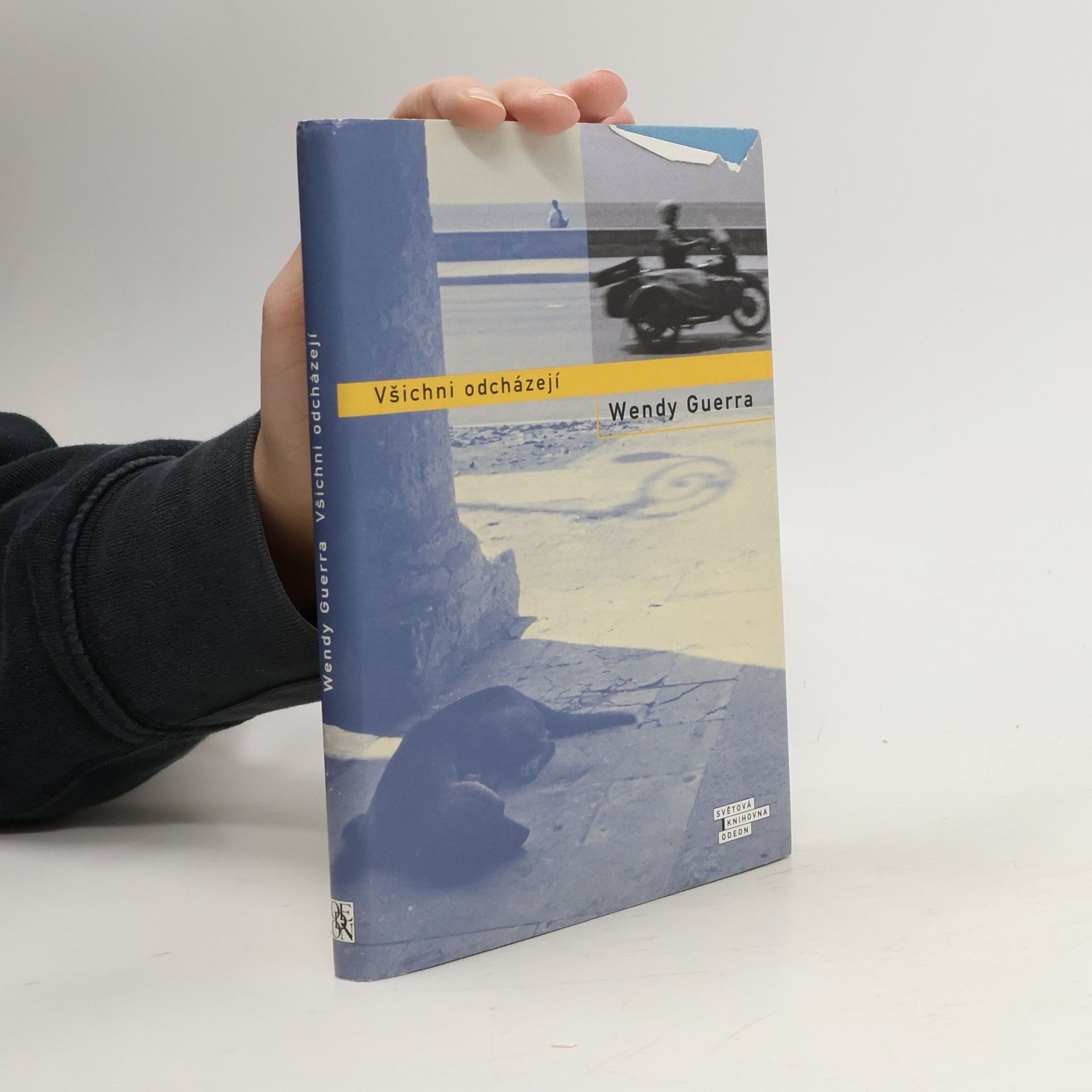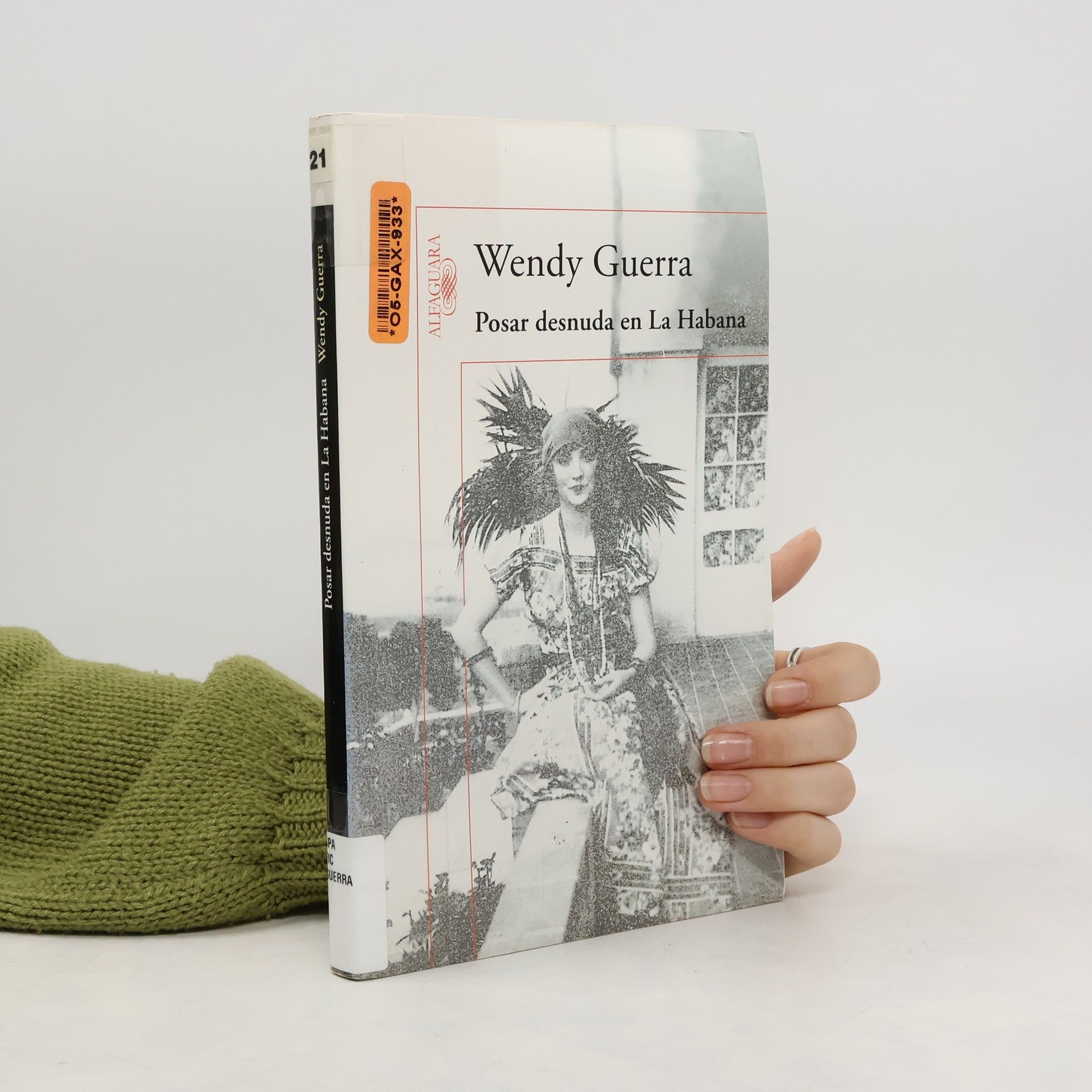Už nevím, kdy mě napadlo přestat být malou holkou. Žiju ponořená do Deníčku a jedině na jeho stránkách se chovám přirozeně a uvolněně. V něm jsem byla vždycky dospělá; předstírala jsem, že jsem holčička, ale nebyla to pravda. Příliš dospělá pro Deníček a příliš dětská pro okolní svět… Pisatelka deníku Nieve Guerra žije se svou matkou, rozhlasovou redaktorkou, a švédským otčímem, zaměstnancem jaderné elektrárny, na karibském pobřeží Kuby. Šťastné dny dětství končí ve chvíli, když se objeví její biologický otec a dostává ji do péče. Odváží ji na venkov a týrá ji, vězní, nedává jí najíst, zakazuje jakýkoli kontakt s matkou. Po mnoha výstupech je otci odejmuta - poté když si sama rozbije hlavu o trubky v tělocvičně. Deníček z dětství nás uvádí do kubánské reality roku 1978 - záměrně nemotorný styl zápisků malé holky konstrastuje s bezvýchodností situace a přízračnou realitou, kterou nám obratně zprostředkovává. Deníček z dospívání z druhé poloviny 80. let už ukazuje trochu jinou tvář: ostřejší, radikálnější. Do Havany se s matkou vracejí v době, kdy se tisíce Kubánců uchylují na peruánskou ambasádu a dožadují se práva opustit zemi. Téměř dospělá Nieve se seznamuje s malířem Osvaldem, který odjíždí do Francie a slibuje jí, že za ním bude moci brzy přijet. Postupně všichni odcházejí…Ve střední a východní Evropě padá jeden režim za druhým.
Wendy Guerra Knihy
Wendy Guerra je kubánská básnířka a spisovatelka, jejíž díla se často zaměřují na témata identity a vykořenění. Její psaní je známé svou lyrickou kvalitou a pronikavým vhledem do lidské psychiky. Guerra zkoumá složitost vztahů a hledání smyslu v neustále se měnícím světě. Její jedinečný hlas obohacuje kubánskou literaturu o současný pohled.







"A lush, sensuous, and original tale of family, love, and history, set against the backdrop of the Cuban Revolution and its aftermath. Nadia Guerra's mother, Albis Torres, left when Nadia was just ten years old. Growing up, the proponents of revolution promised a better future. Now that she's an adult, Nadia finds that life in Havana hasn't quite matched its promise; instead it has stifled her rebellious and artistic desires. Each night she DJs a radio show government censors block from broadcasting. Frustrated, Nadia finds hope and a way out when she wins a scholarship to study in Russia. Leaving Cuba offers her the chance to find her long lost mother and her real father. But as she embarks on a journey east, Nadia soon begins to question everything she thought she knew and understood about her past. As Nadia discovers more about her family, her fate becomes entwined with that of Celia Sanchez, an icon of the Cuban Revolution-a resistance fighter, ingenious spy, and the rumored lover of Fidel Castro. A tale of revolutionary ideals and promise, Celia's story interweaves with Nadia's search for meaning, and eventually reveals secrets Nadia could never have dreamed"--
Everyone Leaves
- 256 stránek
- 9 hodin čtení
"A classic story . . . delivers real news from Cuba in a lyrical way."-NPR Available for a new generation, Wendy Guerra's intoxicating and heartrending classic--a portrait of economically depressed post-revolutionary Cuba in the late 1970s, written as the diary of a young girl left behind by her parents and the state, who becomes caught in an acrimonious custody battle. It is 1978, and Nieve finds herself caught between the tides of her parents' turbulent relationship and a country in turmoil. To try to control her situation, she begins to record the intimate and harsh details of her life in her diary. Becoming her sole means of expression, the diary is her only constant and her only friend. From being torn from her mother, her mother's free-spirited and loving boyfriend, and her childhood city of Cienfuegos, to living with her abusive father, an alcoholic theater actor, to her forced induction as a Cuban "revolutionary Pioneer," Nieve records in honest detail a life in which she is powerless as she loses the people and freedom she loves. Mirroring Wendy Guerra's own adolescent experiences, Everyone Leaves is a vivid portrait of family life and social and political unrest in Castro's Cuba that explores how the patriarchal and conformist notions of the Revolution ultimately betrayed the nation's women. Translated from the Spanish by Achy Obejas
Poems from a critically acclaimed Cuban writer available in English for the first time. Imbued with a sensuality reminiscent of the work of Anaïs Nin, Wendy Guerra's Delicates takes readers on an exhilarating journey through the cities of love, where women leave their bodies "in the showers of men," marking their territory "like animals in heat," their panties "saturated with sand and a sidereal isolating odor." Guerra's shocking metaphors and images invite us to enter her gallery of striking and provoking poems where we witness a flight through the air from a thirty-fourth-story window and a woman's pilgrimage to the salt flats "to taste the pink in stones" on her lover's behalf. Guerra's relationship with her native Cuba--much like her relationships with men--is complex and multilayered. Her work confronts the realities of a political system that doesn't celebrate artistic freedom. Here we have a new way of looking at a woman, an artist, a country, and the colonizers of that country. In these music-infused poems, Guerra shares with us her hard-won truths.
La costurera de Chanel / Chanel's Seamstress
- 376 stránek
- 14 hodin čtení
La premiada Wendy Guerra, elogiada por figuras como Eduardo Mendoza y Alejandro González Iñárritu, regresa con una conmovedora novela. En Arcachon, una pequeña ciudad francesa, Simone Leblanc decide reabrir el taller de costura de su abuela. Junto a Teresa, su ama de llaves y confidente, remodelan el espacio y, al inicio de la temporada, sus diseños atraen a los clientes. Simone busca liberarse de las restricciones de la moda de su época, optando por telas ligeras y patrones innovadores. Su vida da un giro inesperado cuando una veraneante parisina, que se presenta como Gabrielle Chanel, entra en la tienda y le propone una colaboración. Esta asociación transformará la indumentaria femenina, llevando a las protagonistas desde un balneario en la costa atlántica hasta el París de la Primera Guerra Mundial y la Cuba de los años treinta. A lo largo de la historia, se desarrolla una compleja amistad con un desenlace inesperado. Guerra entrelaza realidad y ficción, mostrando el destino de mujeres dispuestas a arriesgarlo todo por sus sueños. La novela explora una época apasionante, marcada por contrastes entre la moda y los tiempos oscuros que rodearon a Coco Chanel, y destaca el talento de Guerra, que combina naturalidad y humor en su narrativa.
Negra
- 320 stránek
- 12 hodin čtení
"Nirvana del Risco es la primera heroina negra cubana que se muestra desnuda, abierta y descarnada ante lo que por prejuicios muchos esconden: la bisexualidad, el racismo, la politica, el miedo y la cercana intimidad con el enemigo. Hija de la generacion de los anos 60 y rebelde protagonista habanera en los 2000, recorre el camino entre lo prohibido y lo sagrado, revelando asi ocultas recetas asentadas en una cultura afrocubana (Regla de Ocha). Rituales que van desde la dinastica brujeria cubana, aquella que pocos aceptan abiertamente y se usa en rituales y conjuros cotidianos, hasta el complejo equilibrismo entre raza, sexo, politica y religion, "--Amazon.com
Revolutionaire zondag
- 224 stránek
- 8 hodin čtení
Cleo, een dichteres uit Havana, staat er plotseling alleen voor wanneer ze haar ouders verliest door een auto-ongeluk. Ze voelt zich een vreemdeling in haar eigen land, waar de staat het schrijven van gedichten maar verdacht vindt. Op zoek naar een thuis voegt ze zich bij haar ex-vriend en diens hechte groep Cubaanse ballingen in Mexico. Maar ook daar raakt Cleo niet geaccepteerd, en wordt ze zelfs van spionage verdacht. En dan krijgt ze opeens nieuws uit onverwachte hoek over het revolutionaire verleden van haar vader.
Posar desnuda en La Habana
- 202 stránek
- 8 hodin čtení
Es 1922. Anaïs Nin regresa a Cuba. Tiene 19 años y se ha comprometido con Hugo Guiler, un rico banquero cuyos padres no están de acuerdo con que su hijo se case con una latina, católica y morena. Él está en Europa, meditando sobre la decisión que habrá de tomar. Ella, en cambio, ha vuelto a su ciudad natal después de haber vivido en Estados Unidos. Anaïs escribe el diario por el que será conocida. Allí, rodeada por sus tías en una finca de los campos de La Habana, vuelca sus dudas sobre la conveniencia de casarse y los preparativos de su inminente boda; sus deseos de ser escritora y vivir en París; y sobre su determinación de ser una mujer libre, guiada sólo por la cadencia de su deseo. Su estancia en Cuba se convierte para ella en un laboratorio de pruebas de su porvenir.

